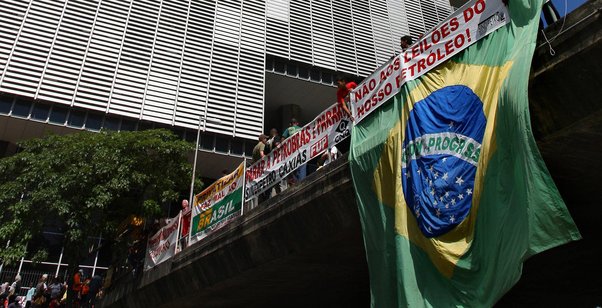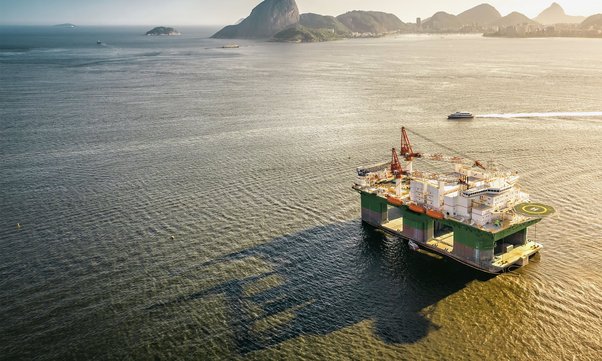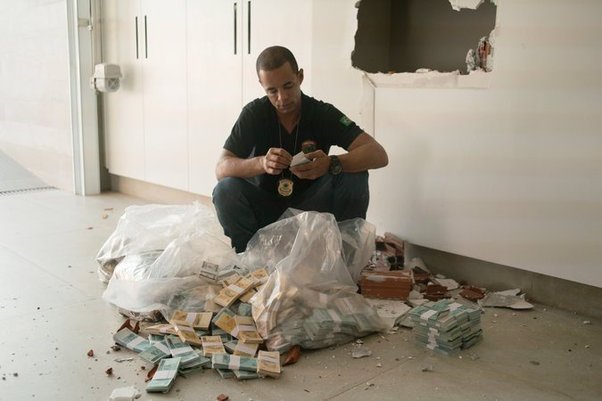In 1988, the tropical island nation of Jamaica sent a snow sleigh team to the Olympics – a story that reached screens the world over in the blockbuster film, Cool Runnings.
That team, I was surprised to read in the new book The World for Sale, received funding from an unlikely source: a commodity trading firm, Marc Rich & Co.
While the Cold War was raging, Marc Rich & Co. advanced Jamaica payments for US bauxite purchases, helped hide its debt from the IMF, lent it money to buy an oil refinery and even help fund another Olympic team.
A cosy relationship, it seems. But it cost Jamaica, whose leaders had agreed contracts providing massive discounts on its resource sales.
As the authors, Javier Blas and Jack Farchy, explain, the story of Marc Rich & Co. in Jamaica is one of how commodity traders could turn a relationship with a bankrupt government to their own advantage in the midst of global geopolitical turmoil.
The core business of these companies is to buy and sell goods, moving them from areas of supply to areas of demand, yet it has become so much more. From Jamaica to Cuba, Chad, Kazakhstan, Libya, Zimbabwe and beyond, the commodity traders cut deals that changed the course of history – both domestically and on an international stage.
The rise and rise of commodity traders
In 2020, two traders, Glencore and Trafigura (both born of the Marc Rich & Co. dynasty), ranked seventeenth and twenty-seventh in the world by revenue, with Glencore sitting five slots below Apple and both well above Microsoft. Over the past year, while the oil price crashed and the Covid-19 pandemic raged, the sector flourished, profiting off the volatility that sent others into the ground.
The book charts the growth of this industry from the end of the Second World War to date, a trajectory that has positioned these firms as a potent financial and political force in the global economy – “the hidden hand behind moves in prices or political events,” according to Blas and Farchy.
At the heart of this transformation are four global developments: the decline of the ‘Seven Sisters’ (the seven mega-companies that dominated oil markets) and the opening up of global markets in the 1970s, the collapse of the Soviet Union in 1991, China’s boom in the early twenty-first century and, finally, the financialisation of the global economy. At each stage, political and economic turmoil collided to create a void into which these companies would step, willing to tread where others daren’t.
Global power players, shadow bankers and questionable middlemen
Commodity traders have featured in many Global Witness exposés over the past two decades. Three themes in particular emerge from the book that relate to our work investigating corruption, corporate malfeasance and regulatory blind spots.
The first is how these companies have become global power players, unbeknown to most. In Iraqi Kurdistan, the authors argue, the commodity traders helped free the region from economic dependence on Baghdad and gave it the confidence to push for independence. Elsewhere, in Cuba, they swapped sugar for oil with Fidel Castro, helping to keep the Communist revolution alive. In Libya, the intervention of another trader, Vitol, shifted the balance of a violent war. The world over, these companies link governments to markets, moving resources out and money in, irrespective of into whose hands that money falls.
The second is the role of these companies akin to shadow bankers, whether that be as lenders to cash-strapped governments, initiators of new financial products or simply as speculators in the global economy. Their advance payments for oil and other commodities – so-called ‘resource-backed loans’, which we’ve written about here, here and here – helped prop up governments in Chad, Cuba, Jamaica, Kazakhstan and Russia, and in other cases that didn’t make the book such as Republic of Congo and South Sudan. In Zimbabwe, one trader, Cargill, even took to printing its own money to pay farmers, acting like a de facto central bank. To fund the Kurdistan oil purchases, London-listed Glencore created an ‘oil-backed bond’ that drew money in part from the savings of American pensioners.
Through tale after tale, the authors convey the traders’ dual identity as both physical and financial players; “arbitragers par excellence”, not just of commodities but of money too. In doing so, Blas and Farchy overturn a mantra that has helped the industry slip through the gaps of siloed (or simply non-existent) oversight, particularly in Switzerland where many of these companies are based.
The third theme that relates to our work is the traders’ habit of engaging agents – well-connected individuals or companies who help set up contracts in places where it is otherwise difficult to secure business or, as the authors put it, act as an occasional means of outsourcing bribes.
In Democratic Republic of Congo, Global Witness has investigated Glencore’s troubled relationship with the now sanctioned mining magnate and gatekeeper to power Dan Gertler. In Brazil, we revealed how Vitol, Glencore and Trafigura used middlemen notorious for their role in the mammoth ‘Car Wash’ bribery scandal.
Blas and Farchy present other cases too. One particularly striking example is that of Glencore’s forays in Iraq, where the company used the same fixer first to pay illicit ‘surcharges’ to secure access to oil under Saddam Hussein and then, over a decade later, to facilitate oil sales by the independence movement in Iraqi Kurdistan.
Many of these relationships have culminated in corruption probes targeting the sector led by prosecutors in the US, UK, Switzerland and Brazil. In 2019, Gunvor was forced to pay $95 million for a bribery scandal in Congo and Ivory Coast – the largest penalty the Swiss prosecutor had ever issued against a commodity trader. In 2020, Vitol agreed to pay $164 million after admitting to bribing officials in Brazil, Ecuador and Mexico.
An uncertain future
As prosecutors close in, the industry faces a series of broader structural challenges – a note on which the book ends. These include global efforts to combat climate change and what this means for a sector that relies on fossil fuels for the bulk of its profits.
Glencore, the authors point out, is not only the world’s top coal trader, but one of the largest coal miners too. The rest of the ‘big five’ – Gunvor, Mercuria, Trafigura and Vitol – generate most of their revenue from oil; not just oil sales I might add, but loans backed by oil that lock governments into production for years to come, jeopardising any attempts at a so-called ‘managed decline’. All commodity firms use heavily polluting ships to move their goods and a global shift to enhanced scrutiny of indirect supply chain (so-called ‘scope 3’) emissions spells trouble for the sector. Business-as-usual means running headlong into a crisis, both for the climate and for company and investor balance sheets.
As the future of the commodity traders and our planet hangs in the balance, the authors leave us with a key message, one that Jamaica’s leaders knew all too well: that these companies have a global influence that can no longer be ignored.
'The World for Sale' by Javier Blas and Jack Farchy was published by Penguin Random House on 25 February 2021.


